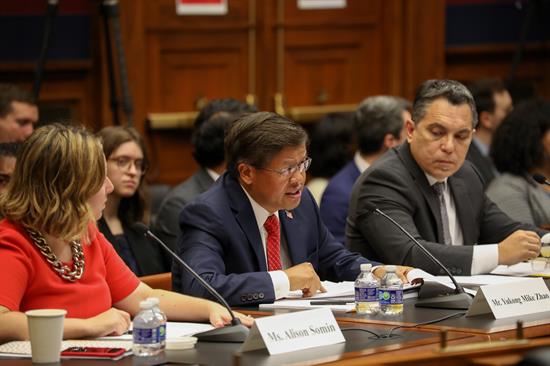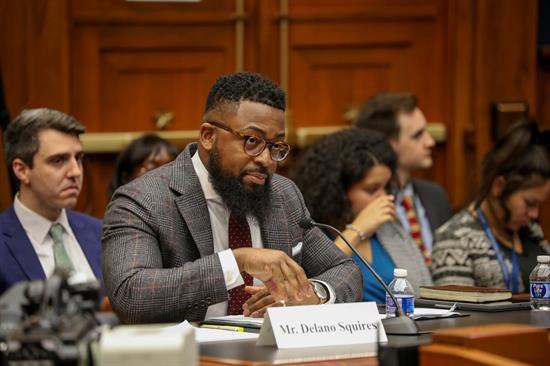E&W Blog
Hearing Recap: Race-Based Admissions Edition
WASHINGTON, D.C.,
September 29, 2023
The Higher Education and Workforce Development Subcommittee convened yesterday to discuss the aftermath of Students for Fair Admissions v. Harvard and Students for Fair Admissions v. UNC. In its decision, the Supreme Court held that race-based admissions are unconstitutional, signifying a major shakeup in postsecondary education.
For too long, race-based admissions have internalized in minority students that they need a leg-up on the competition in order to be accepted at elite universities. Today, the Committee dispelled that myth in favor of a positive message of merit and equal opportunity. The expert witness panel included Alison Somin, Legal Fellow at the Pacific Legal Foundation; Yukong Mike Zhao, President of the Asian American Coalition for Education; and Delano Squires, Research Fellow at the Heritage Foundation. In her opening exchange, Rep. Elise Stefanik (R-NY) highlighted the inherent contradictions of race-based admissions. She asked, “Previously, Grutter v. Bollinger assumed that race would be only treated as a plus in the admissions process. But we saw at Harvard that in some cases this was treated as a minus. Is this correct?” To which Ms. Somin replied, “Yes, when there are only a limited number of seats at any given university, it is inevitable that a plus factor for some will be a minus factor for others.” Building on Rep. Stefanik’s question, full Committee Chairwoman Virginia Foxx (R-NC) questioned the effect of giving racial plus factors to students. One such consequence is sometimes referred to as the “mismatch effect,” which occurs when the academic bar is lowered for race-based admits. Chairwoman Foxx asked, “What might a ‘mismatch’ result in?” Mr. Squires answered, “Black students are more likely to major in STEM disciplines at selective schools, but also more likely to switch out of those majors.” The effect can be observed in bar exam results and graduate school acceptance rates as well.
He asked Mr. Zhao, “Given this growing number of DEI offices and positions on campus, how might that impact discrimination in other aspects of campus life?” Mr. Zhao recalled the cultural revolution in China and compared the establishment of “Revolutionary Committees” to DEI office outgrowths. Hopefully, the ruling will help ensure that the primary focus of schools is to educate, not indoctrinate. The conversation then moved to educational priorities. If not race, what should America’s priorities be? Representative Nathaniel Moran (R-TX) raised the point that society’s hyper-fixation on race often blinds us to neglected factors that contribute to student success. Rep. Moran asked Mr. Squires about those neglected factors, to which the Heritage fellow responded, “The research is conclusive at this point—that children raised in two parent homes by married parents tend to do better on a host of educational and social outcomes.” That’s right. Any solution to disparities in education must begin at the family level, as Mr. Moran put it, “By working hard, by serving others, and instilling good values.” At the end of the day, the distance between the two sides of the aisle was not the chasm one might expect. Each Member wants students to thrive under a system in which they receive a fair and just education. Democrat-invited witness David Hinojosa, Director of the Educational Opportunities Project at the Lawyers' Committee for Civil Rights Under Law, closed the hearing, saying, “Affirmative action was never the silver bullet. It wasn’t going to get us where we needed to go.” Indeed. The Committee looks forward to charting a path forward for a better and brighter future, absent racial discrimination. Bottom Line: The Court ruled, and the Committee followed up. The race-based admissions era is over. |
Browse News
Stay Connected


